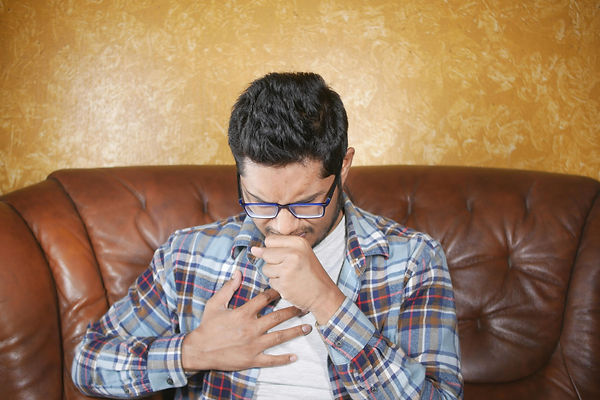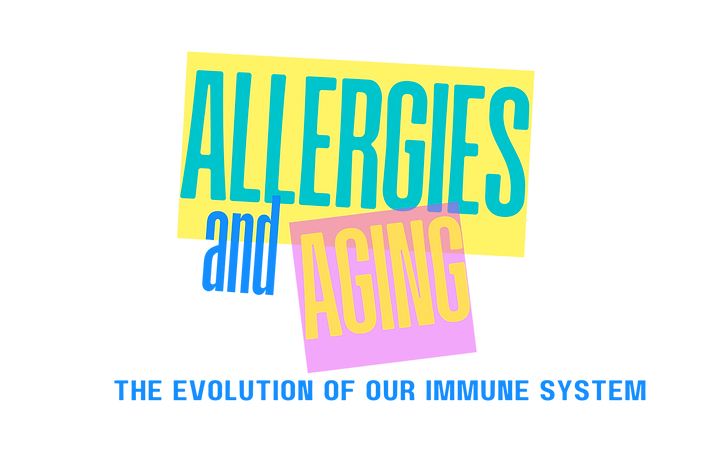



By Dara Mormile
You've been eating your favorite food -
or using your favorite soap/perfume for years.
Suddenly, out of the blue, you break out into a rash of hives in a matter of minutes - or maybe your face blows up like a puffer fish!
What happened?
Just because you're an adult who's outgrown some of your childhood allergies, don't be fooled!
Your immune system is not impenetrable!
According to reports, our immune system does get weaker as we age and puts us at risk for a smorgasbord of diseases and allergies we were once bulletproof against. Preferred Health Magazine had the pleasure of speaking to Dr. Jason Bellak, MD, FAAAAI, FACAAI,
FACP, Owner/President and Allergy/Immunology Physician at the Allergy & Asthma Center in Las Vegas, Nevada, about modern allergies and how our immune systems don't necessarily get accustomed to the things we're exposed to.
At what age does the immune system typically weaken?
"The truth is that we can develop allergies at any age. But in general, people in their 50s, 60s and over might find that their immune system isn't as strong as it used to be for several reasons," said Dr. Bellak, who still has patients in their 70s requiring allergy shots. "The older we get, the less the body responds effectively to infections; as we already know older folks are more susceptible to severe outcomes from having viruses like Covid19 and Influenza. Those types of reactions can increase your risk for asthma exacerbation. Also, as we age, we're unable to regulate inflammation, but if it goes under-regulated, it can lead to other problems."
He noted that some allergies start to wane in older populations, but because the immune system is so complicated, environmental triggers have become more prominent. Changes in temperature and humidity can aggravate allergies, and some can experience an increased sensitivity to strong odors like perfumes and even house cleaners.
How do allergies affect women differently?
As women age and approach menopause, their bodies stop producing estrogen, and the result is often a whirlwind of changes throughout the body that sometimes seem to make no sense.
Dr. Bellak wants women to know that developing different allergies and reactions during this tumultuous change - and beyond - is completely normal.
"Post-menopausal women can develop what's called basal motor rhinitis (when tissue becomes inflamed in the nose from various irritants), making their immune system more sensitive and react to triggers they never had to think about before," he said.
Menopause can also make pre-existing allergies worse as hormonal changes wreak havoc on the immune system.
The Carolina Hormone and Health Center notes that "The level of histamine – a hormone that is triggered by allergens and binds to receptors that cause symptoms like itching and swelling – in your body is directly related to the amount of estrogen your body is creating. In rare cases, you can be allergic to the very hormones that your body is producing, in addition to experiencing an increased sensitivity to allergens."
Myth or fact: Covid19 and Covid19 vaccines have an impact on our immune system. Dr. Bellak is no stranger to the idea that the Covid-19 pandemic changed the way all of us respond to
allergens. If you've ever had Covid - or took one of the vaccines - you may find your body reacting out-of-sorts to things that were never an issue!
Despite the fact that the global health emergency is no longer a 'deadly threat,' many are experiencing the effects of allergic reactions years later, triggered by new foods, smells and chemicals.
"The evidence is still emerging about how Covid has changed our immune responses," he said. "But there's absolutely some truth to Covid changing how we cope with allergens and develop new triggers."
The compassionate doctor said that during an infection/vaccination, our autoimmune reactions are impacted because our systems are in such a heightened sense of reactivity. "There's also what researchers call the Hygiene Hypothesis; in general we've been too clean, using antibacterial soap and changing what we're exposed to after Covid, causing our microbiomes to react differently. It's an area of intense research because the bacteria on your skin is different from what's in your nose, for example, and new hygiene measures could be disrupting the system– putting you at an increased risk to react to things you normally wouldn't."
What is changing in the realm of allergies and our immune system for 2025?
Our current landscape of allergies - and reactions like breaking out into hives - to ingredients like glutenand dairy has immensely transformed. You may have only suffered from peanut allergies as a child, but food production and preparation has shifted how our bodies also react to organic substances. Keep in mind that we're also constantly introducing our systems to new products as time goes by - whether we're 20 or 60 years old!
Modern processes and shifts in ingredients continue to be a possible allergy trigger of swelling body parts, tingling sensations and, in severe cases, anaphylaxis.
"Patients come to me and say, 'I've been using [this] or eating [this] my entire life...and recently it's causing hives or a rash - or I'm suddenly getting sick'...So many products we use can change just one ingredient years later - for whatever reason - and that ingredient becomes an allergen trigger," Dr. Bellak concluded.
The best way to figure out what your body is doing - and how to prevent triggers from causing blow-ups - is to visit your local allergist where a quick test can narrow down your ailments and provide treatment options or help you identify triggers to avoid. Typical allergy tests entail small injections where common allergen samples are needled into the skin with the hopes of determining which substance triggers a reaction in the blood/immune system.
It just goes to prove that allergies truly aren't anything to sneeze at -
no matter how old you get!
Jason Bellak, MD, FAAAAI, FACAAI, FACP is dual Board-Certified in pediatric and adult allergy and immunology as well as internal medicine.
Dr. Bellak is uniquely qualified to understand how allergies, eczema, and asthma can reduce quality of life, as he has been diagnosed with the conditions himself. To that end, Dr. Bellak is passionate about teaching and empowering his patients to live without health limitations. If you're in the Las Vegas area and looking for answers about those annoying allergies, visit
https://allergyvegas.com
